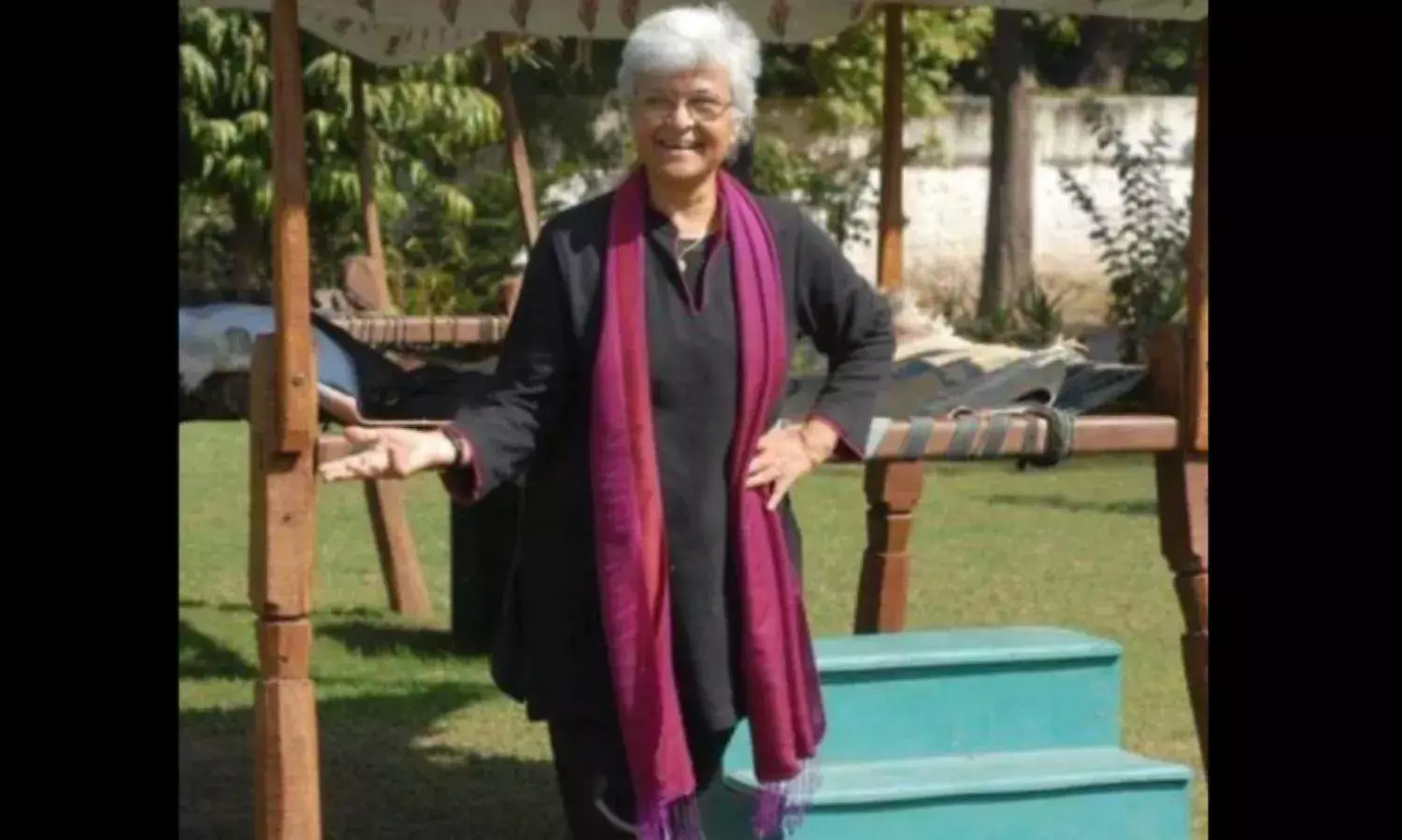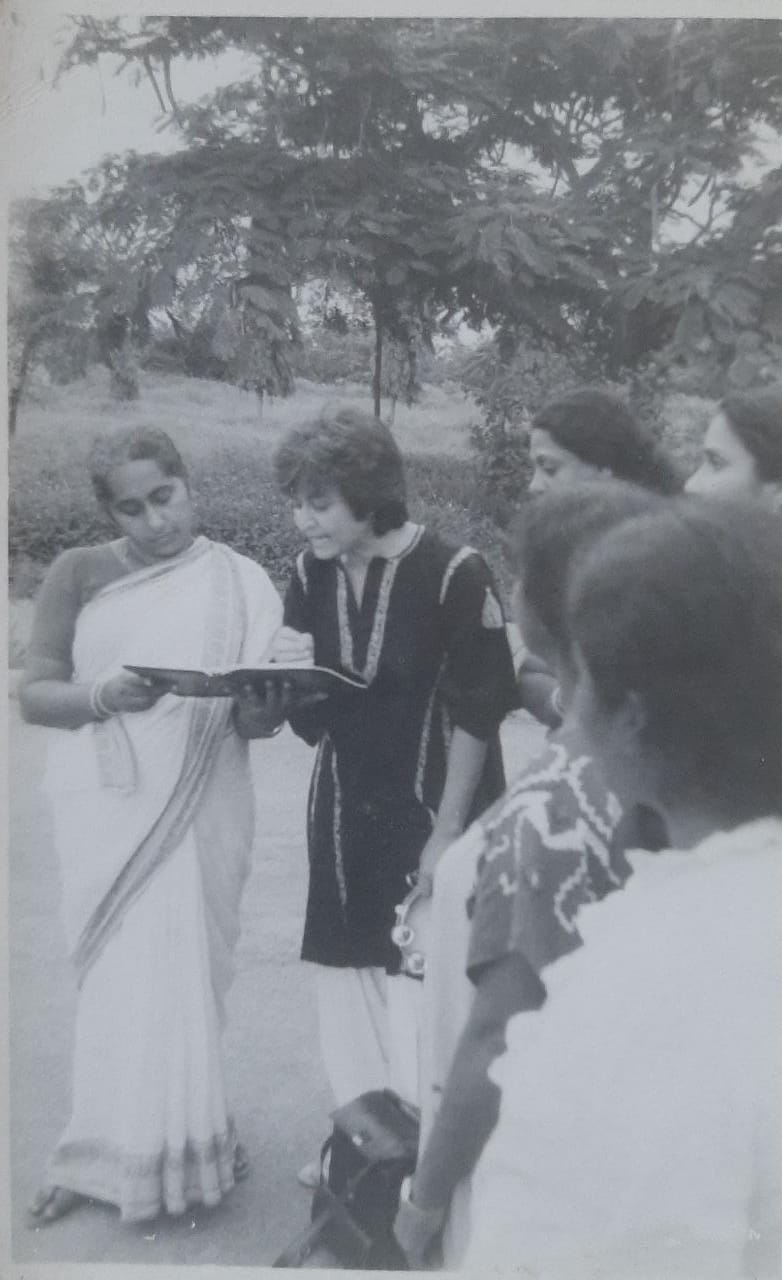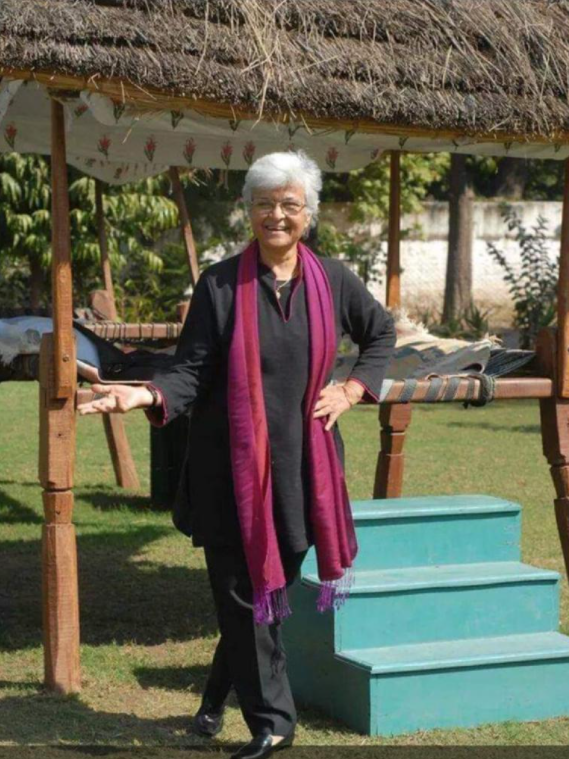The Phenomenal Woman - Kamla Bhasin
Epitome of love and peace

How shall I describe her? The woman who was known to the world, and I mean the world, Kamla Bhasin.
She was at once… Indian, Pakistani, Sri Lankan, Bangladeshi, Nepali; in the nationality slot of her passport she always longed to write South Asian. Since 1975, long before any of us were ‘awake’, she was there. She epitomised peace, she was feminism, she was humanism, above all she was that four letter word which trembles on our lips; she embodied that word, love.
Hours before she left the world a few of us saw her from afar. Propped up on pillows supported by oxygen cannula and IV drip. There she was on our screen while 40 members of the National Committee of Pakistan India Peoples Forum for Peace and Democracy urged her to speak. In her eyes we saw the longing for peace between the two countries. That is why she was there. She said ‘My doctor is here, I will be back in a few minutes’. She never came back.
I first met her when I returned to India in 1984 after 17 years to an empty house. I was at a women’s demonstration held at India Gate. She and Ritu Menon came up to me and held out their hands. That was the birth of a friendship that would last 37 years in this temporal world, but as a believer I know it will go beyond that. Very hesitantly, on their prodding, I picked up my pen to translate The Quilt by Ismat Chughtai. That was my first piece of writing brought out by Kali for Women.
Her last major public appearance was on June 7 of this year when she chaired the Khwaja Ahmed Abbas Memorial Oration delivered by P Sainath. All of us trustees were spellbound at the fact that she had captured Abbas Sahib’s spirit in the words she spoke that day. Bold, fearless, compassionate, just like him. There was another similarity. Abbas had willed that his kafan would consist of Blitz newsprint with his column Last Page placed on his chest. The last word she spoke to her closest companions as they stood around her hospital bed was ‘Notebook…’ All her plans for coming dates and weeks would have been noted there during the last, most painful period.
At the height of the pandemic in 2020 she inspired three of us Bina, her sister, Enakshi, her friend, and me to start Urdu classes. Urdu meant mostly poetry. For 90 days we met for an hour plus every day. The silsila stopped when I left for Kashmir. I was the teacher but my students were smarter than me. The essence of Kamla during those 90 days of literature and fun is best expressed in these lines of Jigar Moradabadi.
Unka jo kaam hai woh ahl e siyast jaanen
Mera paigham mohabbat hai jahan tak paunche
Whatever their business let politicians take up
My message is just love far, far, let it reach.

In the last three months I have watched what I can only describe as a Karishma (miracle). Kamla, whose personal losses are beyond the power of words to describe, when she left this world (which has today has become for many of us a vale of sorrows) was surrounded from end to end by loving family and beloved friends. I could write a story about each one of them. Women and men, Young and old from all over Delhi, from Shillong, from Pune, from Kolkata, from Jaipur, from Dev Dongri there were other places, I forget. Mumbai was next in line. Lifelong friends from Pakistan and Bangladesh were knocking for visas at consulate doors. It was as if a divine benediction was sending them physically and in spirit to her ever welcoming home. In my vocabulary I can only describe them as Farishta e Rehmat. And what can I say about her beautiful challenged son and the loyal staff all nurtured as her children? Even her last few moments in the hospital were not spent inside sterile forlornness. Three beloved friends stood at her bedside to say Khuda Hafiz for all of us.
Allama Iqbal’s immortal couplet, though I have read all my life, took on a new meaning for me since 3 AM last night.
Hazaron seal nargis apni be noori pe roti hai
Badi mushkil se hota hai chaman mein deedawar paida
(Narcissus flower is blind, so the poet avers)
Thousands of years the narcissus laments its blindness
Its hardest for the garden to sprout a seeing-eye
Kamla was a deedawar. As Anis, her dear friend from Karachi said this morning ‘Usne to zindagi bhar pyaar kamaya’ (Her entire life’s earning was just… Love)




